Great
American
Baseball
Stories
Also Edited by Jeff Silverman:
The First Chapbook for Golfers
The First Chapbook for Foodies
The Greatest Baseball Stories Ever Told
The Greatest Boxing Stories Ever Told
The Greatest Golf Stories Ever Told
Classic Golf Stories
Lardner on Baseball
Bernard Darwin on Golf
Lyons Press Classics
Great
American
Baseball
Stories
edited by
Jeff Silverman

guilford
connecticut

An imprint of The Rowman & Littlefield Publishing Group, Inc.
4501 Forbes Blvd., Ste. 200
Lanham, MD 20706
www.rowman.com
Distributed by NATIONAL BOOK NETWORK
Copyright 2019 The Rowman & Littlefield Publishing Group, Inc.
All rights reserved . No part of this book may be reproduced in any form or by any electronic or mechanical means, including information storage and retrieval systems, without written permission from the publisher, except by a reviewer who may quote passages in a review.
British Library Cataloguing in Publication Information available
Library of Congress Cataloging-in-Publication Data available
ISBN 978-1-4930-3901-2 (paperback)
ISBN 978-1-4930-3383-6 (e-book)
 The paper used in this publication meets the minimum requirements of American National Standard for Information SciencesPermanence of Paper for Printed Library Materials, ANSI/NISO Z39.48-1992.
The paper used in this publication meets the minimum requirements of American National Standard for Information SciencesPermanence of Paper for Printed Library Materials, ANSI/NISO Z39.48-1992.
Printed in the United States of America
To the Men of Claw...
Rarae aves, most of them...
Introduction
W hats the essential quality that turns a baseball story into a classic baseball story? Lets touch base for a moment with Americas other national pastime: the movies.
Every year, the American Film Institute hands out a Life Achievement Award to an honoree whose workso the AFIs Solons assure ushas stood, or will stand, the test of time. What a nice soundthe test of timeand what an exacting criterion. To satisfy it, the work must certainly have legslike Cobb and Brock and Ricky Henderson; personalitylike Ruth and Stengel; powerlike Big Mac and the Big Train; craftlike Koufax and Mathewson; gracelike DiMaggio and Williams; couragelike Robinson and Aaron; durabilitylike Ripken and Ryan; and characterlike Clemente and Gehrig. As commendable, individually, as these qualities certainly are, they need more than themselves alone to pass the test; each needs at least a touch of the other. To be classic, in short, is a tall order.
Each of the twenty-two talesthe fictions and the factsthat make up Classic Baseball Stories has stood this test of time. They all satisfy the most readily measured thresholdlegswith ease. The baby in the groupGerald Beaumonts The Crabwas first published in 1921, and if we keep the comparison to the movies in play, that puts it squarely in the silent era. Indeed, the majority of the selections that follow gave voice to a game before the movies realized they had any voice at all. They are tales from a time when Cobb and Speaker were hitting .400, when Johnson and Matty (a contributor here, at least in name; his observations about player superstitions were actually penned by sportswriter John Wheeler) were moving em down, and when artists like Chaplin and Keaton and D. W. Griffith were taking cuts and making cuts, inventing, as they went along, the grammar of the movies frame by frame.
It was a good time for invention, those days, and in their own way, writers like Ring Lardner, Damon Runyon, Grantland Rice, Zane Grey (yes, that Zane Grey, a helluva college outfielder, by the way), Charles Van Loan, and even P. G. Wodehouse (more associated with a small, dimpled ball than one of horsehide stitched together) were also busy making up the language and syntax of the baseball story as they went along. With their pens and their typewriters, they would teach us a new way of seeing and experiencing Americas game; reaching into its heart, they pulled out what would become the ever more sophisticated language of baseball on the page. Theres magic in that accomplishment to be sure, and the best way to fall under its spell is to continue reading what they batted out. Granted, some of their words and phrases and idioms feel datedwhat doesnt after a century or so of servicebut that hardly matters, because what they discovered about the game and its hold over usfans and players alikeis as fresh and excited as bushers face the first time he puts his Major League polyesters on. Keaton and Chaplin are still funny; so are Lardner and Wodehouse. Theyre old, sure, but their bones dont creak. What theyve set down remains energetic and bright, keenly observed and keenly wrought. All these decades later, the words continue to tingle.
Of course, when you understand human nature and baseball natureas these writers didthe work doesnt really age, just the paper its printed on. New generations may find more dazzling or sophisticated ways to say things, as new generations of filmmakers keep upping the ante on their special effects, but is what theyre revealing to us about who we are any sharper, clearer, more incisive or passionate? A home run is a home run whenever its hit.
Let me suggest one more connection that ties the early days of baseball writing to the early days of motion pictures: Theres a history, memory and sheer enjoyment thats lost when we fail to preserve and keep contact with the legacy handed down to us.
Twenty years ago, when I was a novice screenwriter, I became friends with an older writer-director named Richard Brooks. In the late 1950s, he created one of the most memorable on-screen fires in his classicI use that word with no reservations at alladaptation of Elmer Gantry. Since the blazing tabernacle scene climaxing the movie would be shot indoors on a soundstage, every inch of the set had been treated with heavy fire retardant before the cameras rolled. Starting a fire 20,000 leagues under the sea would have been a snap by comparison.
Naturally, Brooks couldnt get the flames to go, so he asked the fire marshal on set what to do. The answer stunned the filmmaker. The fire marshal told him to raid the studio vault, pull out as many old cans of the silent movies stored inside as he could, then coat the set with their contents. Are you mad? Brooks, a noted rager, raged. Thats the heritage of our craft. The fire marshall shook his head sadly. He knew that. But he also knew that no one had put much thought into how best to preserve it. When Brooks opened those precious cans of ancient history, what he mostly found was highly combustible silver nitrate powder; the old film had decomposed as badly as a forgotten corpse. Brooks spread it around the set, and, as the past exploded around him, a remarkable movie moment rose from its ash. Still, what was lost in those cans remains lost forever.
Thankfully, baseballs past has been better preserved in archives and libraries from coast to coast. But preserving the past isnt enough. These stories arent just museum pieces; they live with the spirits of their creators and the spirit of the game. Now and again, they need to come out, stretch their muscles, and show off just how good they are. For them. And for us.
In collecting these twenty-two stories, I feel honored by the chance to dust off some deserving old warhorsesfamiliar ones like Casey at the Bat, and the deliciously arcane, like Philipine war hero Frederick Funstons 1894 account of baseball in frigid Alaskainsert them into a new lineup, and send them up for another cut. I have no doubt theyll connectwith that part inside every fan that dies a little bit each October only to be reborn again in the spring.
Next page
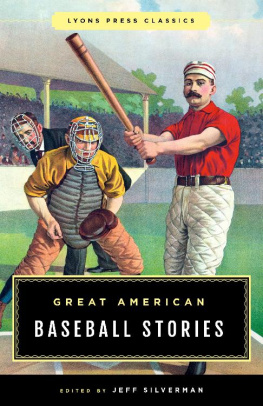
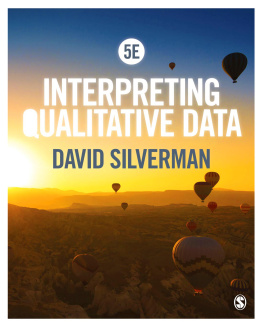


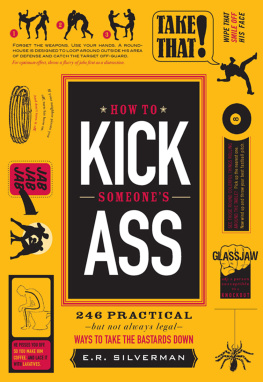
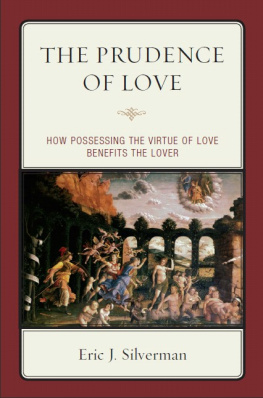

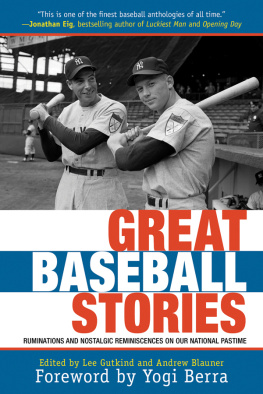
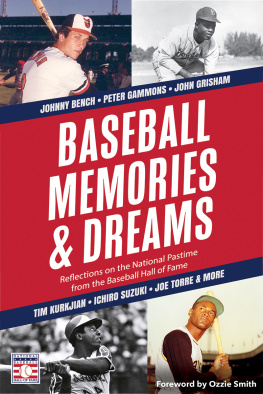

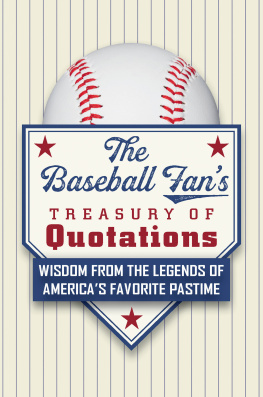
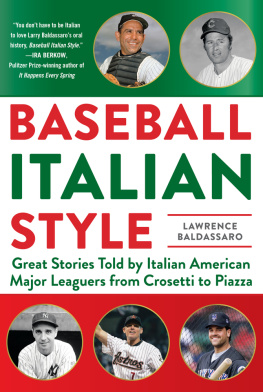
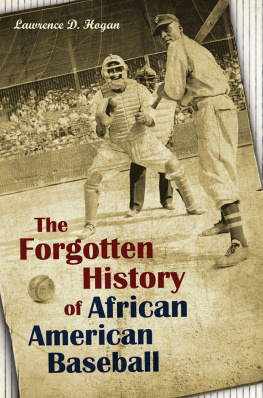
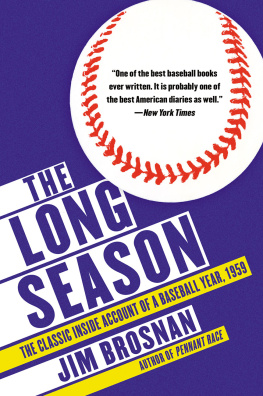
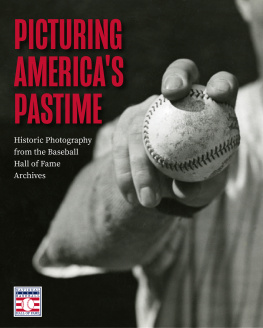


 The paper used in this publication meets the minimum requirements of American National Standard for Information SciencesPermanence of Paper for Printed Library Materials, ANSI/NISO Z39.48-1992.
The paper used in this publication meets the minimum requirements of American National Standard for Information SciencesPermanence of Paper for Printed Library Materials, ANSI/NISO Z39.48-1992.